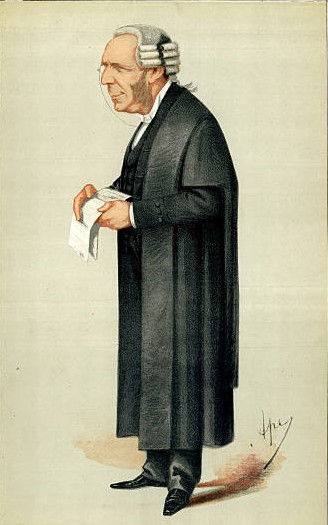“About half the practice of a decent lawyer consists in telling would-be clients that they are damned fools and should stop.”
-Elihu Root

"Why didn't you tell the judge I paid for utilities?" The client was flushed, and a little indignant.
"Because it didn't matter. That's not what we were here to decide." I was flat, largely because I was so exhausted by preparation, travel, and trying to stay focused and ahead of the discussion that had just transpired in chambers on a motion to compel.
"But the other side just sat there and lied! And you let them do that!"
"That's another topic for another hearing. They were talking about stuff he didn't need for his ruling." Still sounding like Mr. Spock, but now probably a little flushed myself as I felt a little indignation well up.
We parted courteously enough, this client and me, walking to our trucks in the courthouse parking lot. But I could hear her and her companion mumbling as they went, probably about what a dumbshit or sissy their lawyer must be.
People have no clue what we do, or they see it through the prism of their own anger at the process. They want to hurt the other person, call them out as liars in court, see a little flash of temper in the old barrister. The anodyne nature of a good legal argument with a smart judge isn't what they're paying those big lawyer bills to see. This is their moment of vindication.
I don't care about vindication. Truly I don't. I want to win, always, but always for the right reason. Introducing facts the judge doesn't need to hear just confuses the issue and often annoys the judge--I've sat in that chair as an arbitrator and hearing officer, and can tell you there's nothing more frustrating than having to listen to some lawyer hammer a point that has nothing to do with what I'm there to decide. I have my outline of issues, counsellor. Help me get this right.
In our case, the judge himself leapt into the conversation twice when opposing counsel represented something that wasn't so. He didn't need my help for that, although I was in fact ready to point out the error given that, unlike who's paying the water bill, this bore directly on the motion before the court that morning. And taking liberties with the record as an attorney is a great way to lose all credibility with the judge. It's just bad advocacy, and around here you're going to see that judge again and again, and they have memories like elephants when it comes to lawyers who can't be trusted.
Years ago I read a wonderful little book by Richard Posner, until his retirement in 2017 perhaps the best known and most highly regarded judge of the Seventh Circuit Court of Appeals, based in Chicago. Posner was a no kidding legal scholar of the first order, and this book examined the differences in the courthouse culture of our legal antecedents in the U.K., and our brawling barristers on this side of the Atlantic. Posner made the point that an English barrister had no ethical obligation of "zealous advocacy", as we have here in the U.S. (although some states are wisely writing that out of their ethics standards), and the mark of a great lawyer there is that he's primarily a great officer of the court. Lawyers and judges cooperate in their system to arrive at the right legal solution to the issue or conflict, maybe because an English judge likely doesn't have staff lawyers and a phalanx of law clerks to research the legal issues in the case. The judge has to rely on the lawyers to correctly summarize the law and accurately recount the key facts, and by all accounts barristers take this obligation very seriously.
We have the same obligation by the way, but sometimes attorneys seem to struggle with reconciling that ethics rule with its counterpart that obligates them to do everything ethically permissible to advance their clients' causes. That, in turn, too often leads to shading the meaning of the caselaw as a matter of "interpretation", omitting key facts as they spin their narrative, and otherwise distorting the record. No wonder so many judges cast a wary eye at us as we come through the chambers door for a hearing.
And clients really don't get it, can't understand why we don't "fight harder" when it's clearly the wrong thing to do, both tactically and ethically. Again, I think a lot of them are emotionally hurting when they show up, and all tend to be a little crazy in that stressful moment. I'll tell you it's lost me some work over the decades, with the occasional client taking their case down the street with the back-handed compliment that I'm just "too nice", but the observation only demonstrates that they don't understand the process, or how to win. And blessedly, I still have more work than I can say grace over, without having to act like the sort of jackass you see on the billboards promising to be your adversary's worst nightmare.
Speaking of too much work, I'm about to continue down a dictation list that may cause my poor dictaphone to catch fire from overuse. Then home to Peg and a cocktail on the veranda overlooking the bay. Not all bad.
Comentarios